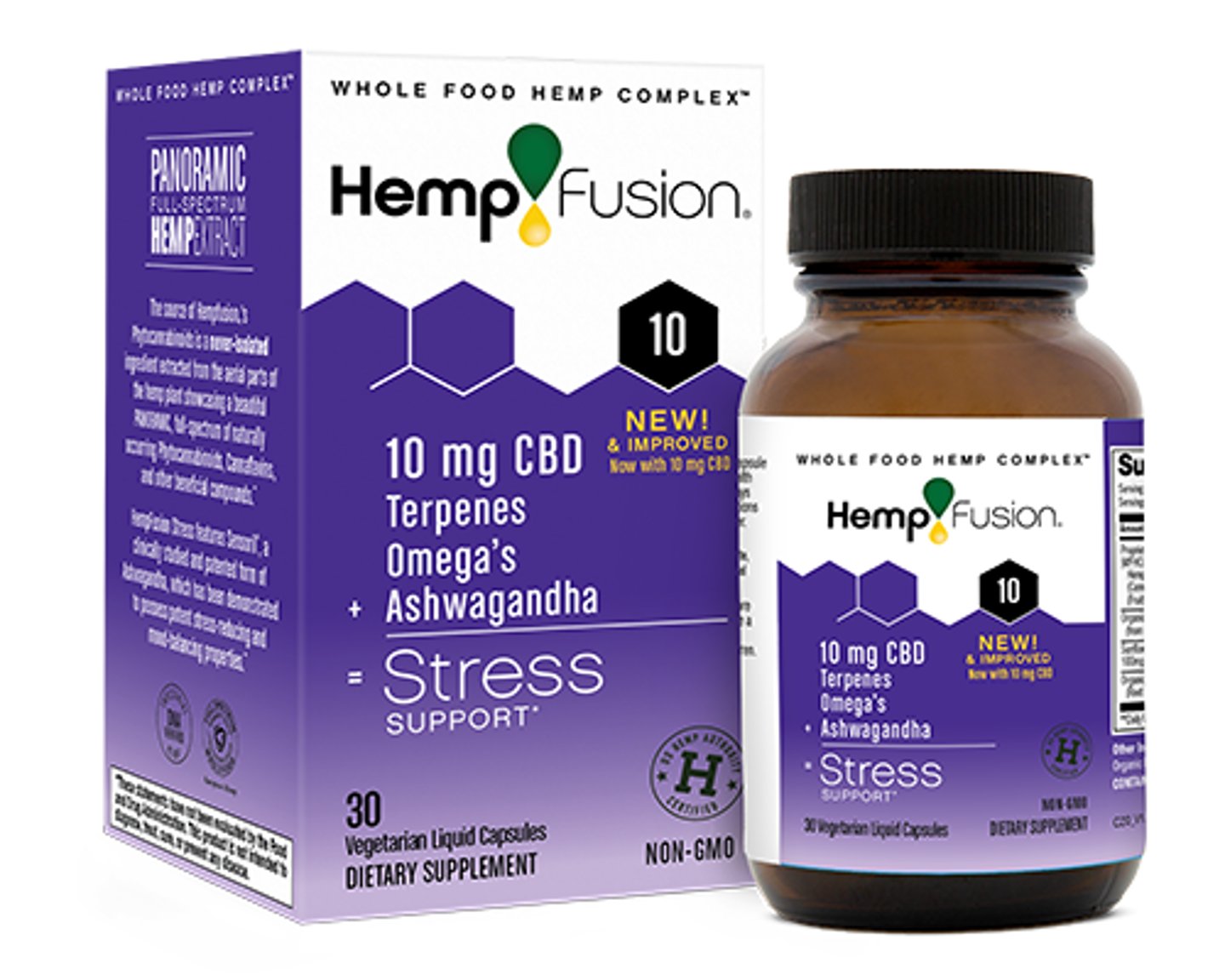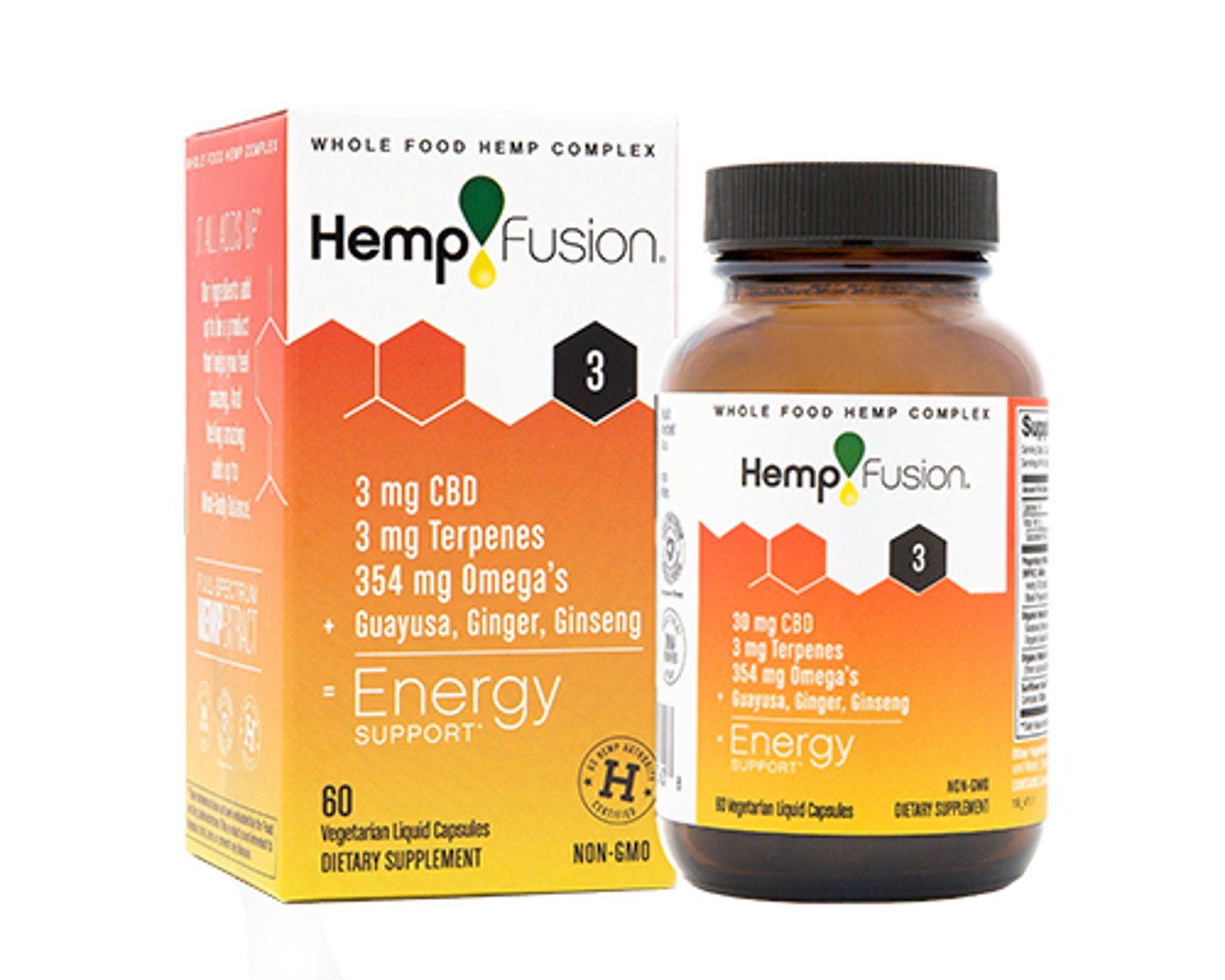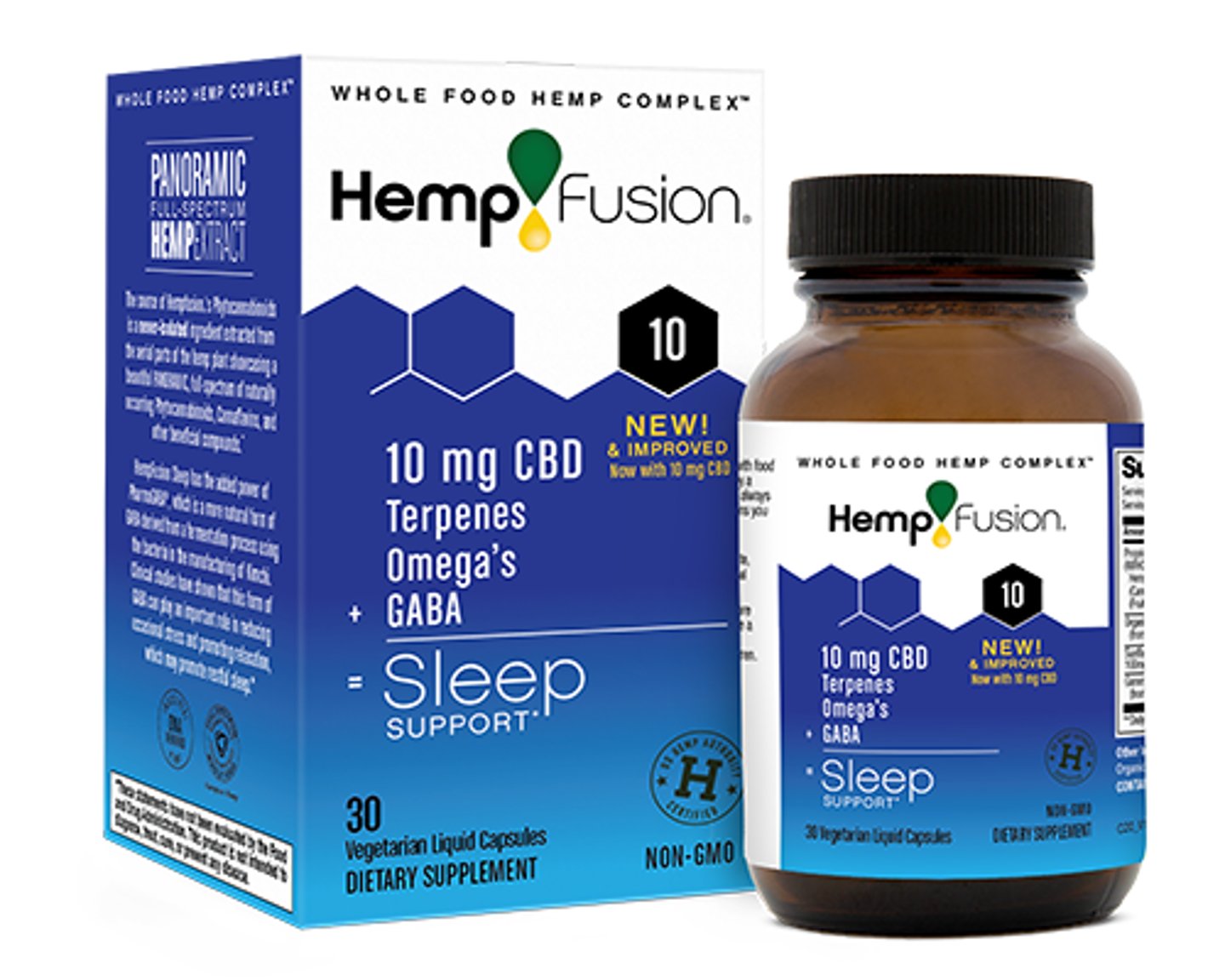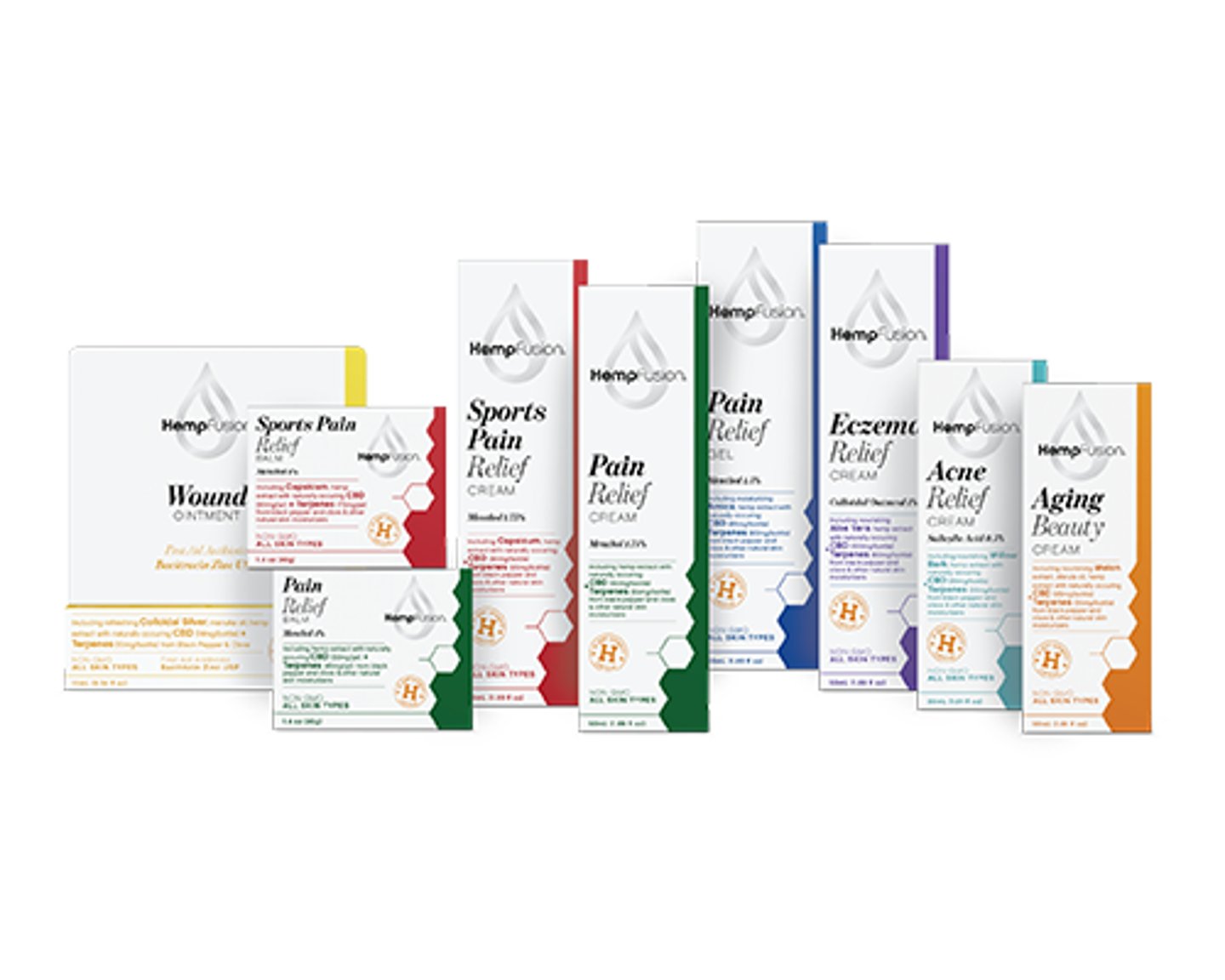Focus On: HempFusion stands out in CBD space by putting quality at the forefront
In the crazy, crazy world of CBD, you have to be prepared to walk the walk and talk the talk if you want to survive.
Officials at HempFusion said they think they are one of those companies. In fact, executives at the Denver-based company said they have implemented the right steps to ensure they offer the best quality products at affordable price points, backed by sensible merchandising to get consumers to notice the brand and develop a strong relationship with it.
Frankly, they better be. With more than 3,000 suppliers and an estimated 25,000 products competing for both valuable retail space and the hearts and minds of consumers, the CBD category remains a world of false starts, great promise, and a lot of waiting around for the dust to settle.
The bottom line is that CBD has been the talk of the retail world for nearly three years now. Yet, the promise of dynamic growth at retail — and the expected profits that would follow for all involved — have been met by the reality that the category is too crowded and the lack of industry oversight that has led to concerns over consistent product quality.
Those issues, plus a warning from the Food and Drug Administration about the category, have put a damper on the industry’s performance. Some retailers have refused to stock CBD-based products, while others have limited their selection. Meanwhile, many consumers simply are confused by it all and also have taken a wait-and-see approach to the category.
Yet, while the category has underperformed on expectations, the potential remains extremely strong for those CBD companies willing to take the necessary steps to calm retailer fears and consumer anxieties. In fact, it has become extremely clear that the survivors in the CBD battles will be those suppliers that provide sound business plans, unique products and perhaps, most importantly, the wherewithal to produce products that merchants and consumers will trust and work.
Everyone is waiting to see which companies are going to step up to the plate.
“We have to meet and exceed consumer expectations in this category because of everything that is currently taking place,” said Jason Mitchell, the CEO and one of four co-founders of 5-year-old HempFusion, a privately owned company with about 50 employees. “At the end of the day, the main factor is having the quality that meets consumer expectations and gets our retail partners comfortable enough to carry our merchandise on their shelves.”
The key, Mitchell said, is to follow the established rules and practices of this complex category. In manufacturing, for example, he said that HempFusion only produces products in FDA-registered facilities that are compliant with current good manufacturing practices and uses a primary manufacturing facility that is ISO 9001 certified.
Testing and validation also are part of the program. Mitchell said that HempFusion does the following to ensure the best quality product:
- All raw materials are tested for identification, microbiological safety, heavy metals, pesticides and herbicides — including glyphosate — as well as residual solvents;
- All finished products are tested in an independent ISO-certified third-party lab for cannabinoid profile, terpene profile, residual solvents, herbicides, pesticides, heavy metals and microbiological safety;
- All finished product testing is available publicly by accessing the on-pack QR code or by entering a lot code on the HempFusion website;
- All other botanicals used in HempFusion formulations are properly tested to make sure they are free of residual solvents and other potential contaminants; and
- Prior to their organic hemp even being planted, soil on the farms also is tested for pesticides and herbicides (including glyphosate), fungicides, heavy metals and other contaminants. Testing even extends to water sources adjacent to the farms, since that could have an impact on the hemp crops. Soil testing is important because hemp is a bioaccumulator.
He also said that HempFusion uses an exclusive panoramic hemp extract from European Commission-registered, DNA-verified hemp and is participating in a number of studies addressing questions about CBD products posed by the Food and Drug Administration about hemp. All hemp is grown using organic methods, Mitchell said.
“We do all this to make the public feel comfortable with our product line. When they see the HempFusion label, they will know that we are a company that dots the I’s and crosses the T’s. The result is also that we are now the third-most-recognized CBD brand, according to the Brightfield Group, a Chicago-based organization that closely tracks data in the CBD industry,” he said.
“We know that retailers are risking a lot when they get involved with CBD and they want answers to what they should be offering their shoppers,” he said. “They are not going to take chances and put their consumers’ safety at risk. We have those answers.”
Of course, promoting the products is part of the process, too. And, Mitchell said that he relies on a combination of what he calls the “digital footprint, influencers and word of mouth” to get people to learn more about HempFusion and its sister company Probulin. Between the two brands, there are more than 50 hemp and probiotic products.
Products in the line are focused on alleviating stress, helping with sleep and providing energy. A new eight-SKU topical line focuses on such issues as pain relief, acne, eczema and first aid.
Mitchell can take credit for much of the company’s success. A naturopathic doctor board certified by the American Naturopathic Medical Certification Board and a longtime board member for the US Hemp Roundtable, many CBD officials agree that he has been a driving force behind the company and the category. Straight out of college, he became involved with the vitamin category, eventually becoming the chief science officer at Country Life Vitamins. In the process, he helped design and launch more than 300 dietary supplements and related products to the market.
In 2013, suffering from his own debilitating illness, Mitchell started Probulin, a company that now offers a wide range of probiotic products that could support a body’s needs. Two years later, he helped start HempFusion. The two companies merged just over a year ago. “We did this one brick at a time,” he said. “At first, it was just an idea. Through innovation and addressing the direct needs of consumers, we built this company up to what it is today.”
The future calls for more products that will satisfy consumer demands and needs, and possibly the entry into the food and beverage industry. “We are going to stay true to our formula of creating a portfolio of products that are compliant,” Mitchell said. “We try to minimize the risk for our retail partners and still develop products that consumers want.”




